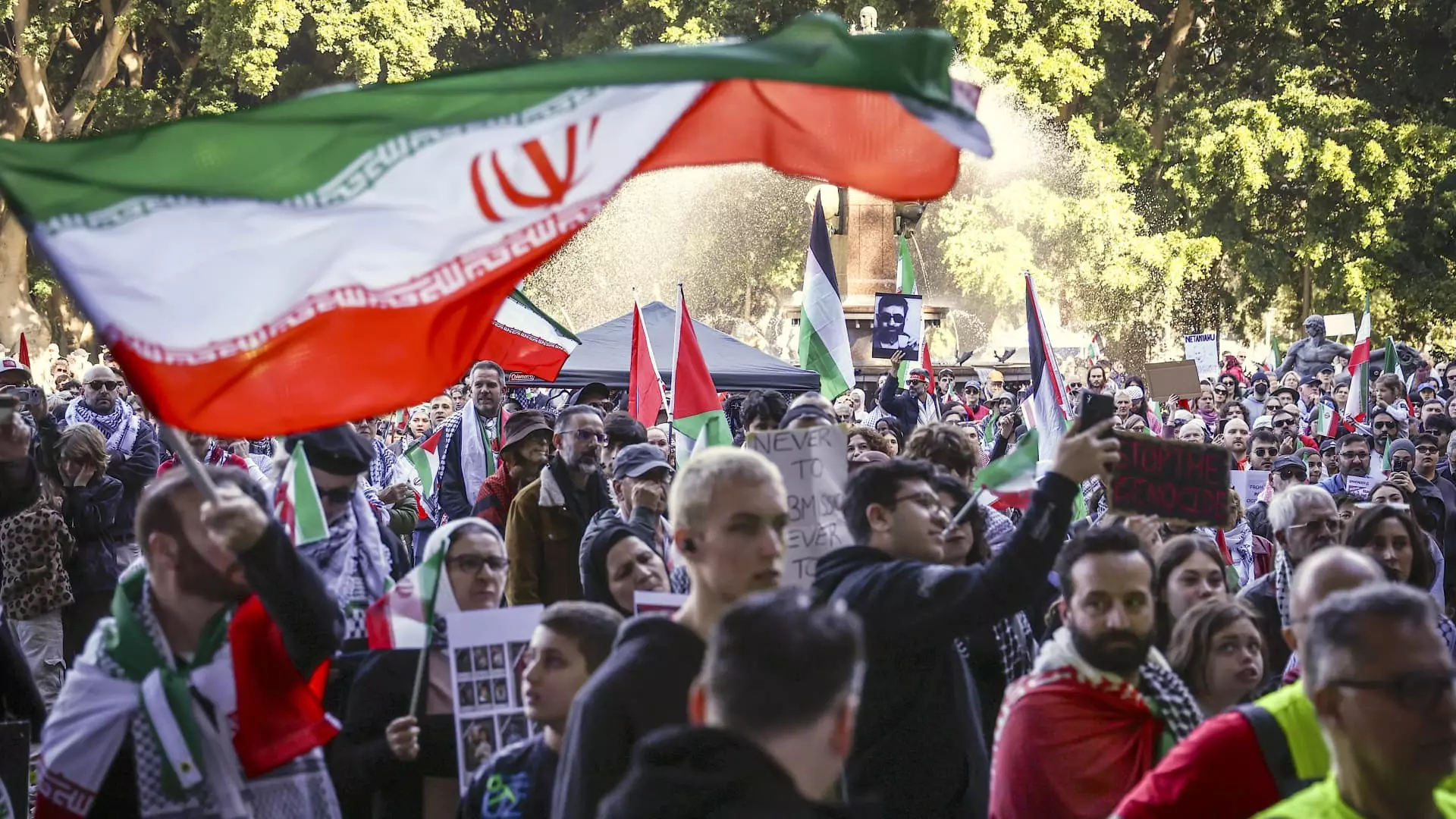The recent surge of aggressive military actions by the United States against Iranian nuclear facilities has stirred an already turbulent region into a veritable storm of conflict. Iran’s Foreign Minister, Abbas Araghchi, articulated the palpable anguish of his nation as he condemned the attacks on the Fordo, Natanz, and Isfahan sites, declaring them not just a violation of sovereignty but a reckless act that could lead to “everlasting consequences.” This particular incident marks a watershed moment in U.S.-Iran relations, one that evokes historical echoes of enmity and magnifies the ideological rift between two nations whose narratives have long been mired in mutual hostility.
Yet, the chilling reality of this situation goes beyond mere rhetoric. President Trump’s flagrant celebration of what he called a “spectacular military success” compounds the crisis. As he boasted of obliterating key Iranian installation, one cannot help but question the implications of such triumphalism. In a world where the repercussions of military interventions are profoundly felt and reverberate beyond the battlefield, Trump’s rhetoric might embolden further hostility rather than foster peace. Is this truly a victory, or merely a march toward increased chaos?
Iran’s Defiance: A Right to Sovereignty
Iran’s response, encapsulated in Araghchi’s vehement declarations, underscores the urgency of defending its sovereignty and, by extension, its dignity as a nation. The launch of missile and drone strikes against Israeli military objectives represents not only a show of strength but also a calculated attempt to rebalance a deeply skewed power dynamic. The historical context is crucial; Iran, often viewed through the lens of a rogue state, has consistently experienced external pressures that deny its agency in the region.
The notion that foreign powers can dictate terms from afar ignores the complex realities that underpin the Middle East’s geopolitical landscape. When Araghchi lamented the destruction of diplomatic efforts at a critical juncture, he pointed to a profound dissonance within international relations, where military might overshadows dialogue. Negotiation should take precedence, yet it appears increasingly futile against the backdrop of missile strikes and political posturing.
The Threat of Escalation: A Regional Quicksand
As tensions mount, the potential for a wider regional conflict becomes alarmingly evident. The reverberations of these attacks extend beyond the immediate clash between Iran and the U.S. Rapidly occurring developments prompt a question: how long until other regional players weigh in, further complicating an already volatile situation? The response from neighboring states, including Saudi Arabia and Iraq, reveals a shared apprehension that could catalyze a more extensive and destructive confrontation.
In this way, the U.S. action sets a peculiar precedent. By actively engaging in military intervention rather than pursuing routes to de-escalation, the risk of unintended consequences skyrockets. Will the U.S.’s self-proclaimed victory ultimately lead to increased instability and suffering across the region? On the ground, the grim statistics—from the Iranian casualties reported by state media to the losses suffered in Israel—serve as a painful reminder of war’s cost, often paid disproportionately by civilians.
The Diplomatic Deadlock: A Call for Constructive Engagement
Crucially, the role of international institutions like the United Nations must not be overlooked. Secretary-General Antonio Guterres’ expression of grave concern emphasizes the necessity for a concerted global response rather than unilateral military ventures. In recognizing the complexity of this crisis, the international community ought to reevaluate its position and work toward meaningful dialogue.
The push for diplomacy—a seemingly simple notion—has been obscured by the haze of conflict and rhetoric. The diplomatic channels, once alive with possibility, have suffered grievous setbacks, seemingly sacrificed at the altar of military calculations. One must wonder if the world will allow itself to be swept away by the currents of war, or if there is a collective will to reclaim the prospects of dialogue, to prioritize human lives over political ambitions.
In a landscape where peace and tragedy stand on a razor’s edge, the hope lies in our ability to reorient ourselves toward cooperation, understanding, and ultimately, the conviction that mutual respect can exist, even among adversaries.

Leave a Reply